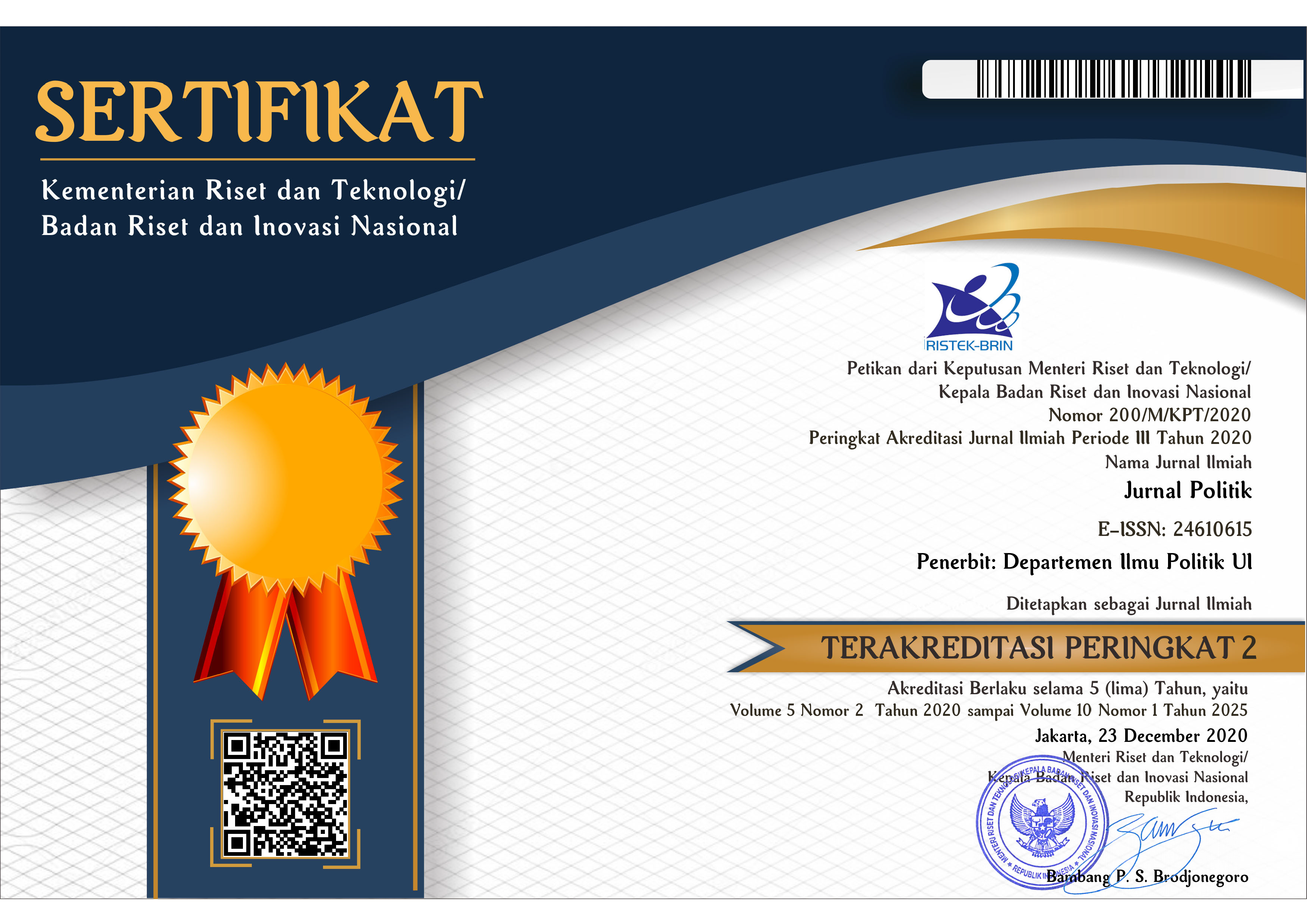Abstract
The rise of religious sentiments and identity politics in Indonesia is currently in a critical phase. Indonesia is neither a Muslim nor a secular country, although it recognizes the existence of God in its first state theory principle. Together with corruption and human rights, religion is a fundamental issue in politicians’ campaign materials, as these topics can be considered key for attracting voters. The fall of President Suharto’s New Order should be considered the starting point of the sublime journey of political identity, which often implicates religions and ethnicity under the umbrella of democratic practices. However, after the fall of Suharto and the New Order era, religious sentiments were not used and did not attacks on other religions until the 2017 Jakarta election. As Indonesia is a diverse country, its politics should not exploit religious or ethnic differences as the basis for voting for certain candidates or turn them into campaign tools. The rise of religious sentiment during the 2017 Jakarta election successfully split Indonesia into two sides: those with a nationalist ideology and those with a religious ideology. It is hypothesized that this separation will sooner or later cause two dangerously practices to grow in the society: Islamic exceptionalism and a government that rules with an iron fist. This qualitative article examines how Islamic exceptionalists have portrayed and framed themselves within Indonesia’s democratic practices and why the religious ideology is again on the rise. It explores arguments about why increases in religious sentiments and identity politics should be considered a critical test for Indonesia’s socio-politics and decisive for the progress of Indonesia’s democracy. Interestingly, the results show that in the context of local politics, most people are not attracted by and do not vote for candidates who exploit religious sentiments during their campaigns.
Recommended Citation
Arjon, Sugit Sanjaya
(2018)
"Religious Sentiments in Local Politics,"
Jurnal Politik: Vol. 3:
Iss.
2, Article 1.
DOI: 10.7454/jp.v3i2.1086
Available at:
https://scholarhub.ui.ac.id/politik/vol3/iss2/1
Included in
Other Political Science Commons, Politics and Social Change Commons, Sociology of Religion Commons


